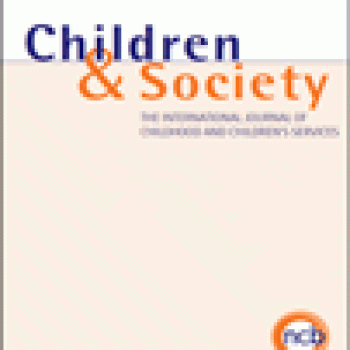
Increasing rates of school enrolment have changed childhoods in the global South, so that it is now the norm for children to attend at least some years of primary school. This paper explores the extent to which valuing of children as educational projects and outcomes may be displacing previous valuations of children as contributors to the domestic economy. The paper draws on qualitative interview data from Young Lives, a longitudinal study of children growing up in four developing countries, using a case study approach to explore the experiences of four children in rural Andhra Pradesh, India. The paper suggests that children are balancing expectations for the future with responsibilities to their families in the present, and concludes that the over-valuing of formal qualifications and the under-valuing of forms of work such as agriculture risk being internalised by children, leaving those who do not succeed feeling they are "a waste". © 2013 John Wiley & Sons Ltd and National Children's Bureau.
Keywords: social values, childhood, work, schooling, India.
The final published version of the article is available on the journal website.
Reference:
Virginia Morrow (2013) “Whose Values? Young People’s Aspirations and Experiences of Schooling in Andhra Pradesh, India”, Children and Society 27 (4): 258-269

Increasing rates of school enrolment have changed childhoods in the global South, so that it is now the norm for children to attend at least some years of primary school. This paper explores the extent to which valuing of children as educational projects and outcomes may be displacing previous valuations of children as contributors to the domestic economy. The paper draws on qualitative interview data from Young Lives, a longitudinal study of children growing up in four developing countries, using a case study approach to explore the experiences of four children in rural Andhra Pradesh, India. The paper suggests that children are balancing expectations for the future with responsibilities to their families in the present, and concludes that the over-valuing of formal qualifications and the under-valuing of forms of work such as agriculture risk being internalised by children, leaving those who do not succeed feeling they are "a waste". © 2013 John Wiley & Sons Ltd and National Children's Bureau.
Keywords: social values, childhood, work, schooling, India.
The final published version of the article is available on the journal website.
Reference:
Virginia Morrow (2013) “Whose Values? Young People’s Aspirations and Experiences of Schooling in Andhra Pradesh, India”, Children and Society 27 (4): 258-269

